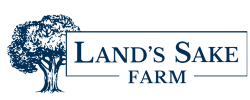Our educational programs for school, scout, and homeschool groups are an engaging, hands-on way for your students to connect to nature. Designed to support Massachusetts Curriculum Frameworks, our programs are led by experienced Farm-based Educators on our farm and on local forested land. Our field trips are adjusted to meet the needs of groups of different ages, abilities, and backgrounds, and our educators are committed to providing meaningful experiences for all visitors. If you want to join us, please fill out the interest form linked below!
Field trips are all priced at a sliding scale of $10-15/participant. We also offer financial aid to any organization who needs it: just indicate your need on the interest form.
Offered: Year-round
Suggested Grades: Pre K - 4th
Come and meet our feathered friends while learning about what makes them (and other birds) so special! Students will learn about how chickens are suited to farm life, what they need to be happy and healthy, and how they are similar and different from their wild-bird cousins! We will explore the chicken lifecycle, learn about amazing egg anatomy, and investigate how various breeds of chickens look and behave differently.
Learning Standards
Life Science: Characteristics of Living Things, Living Things and their Environment, Life Cycles.
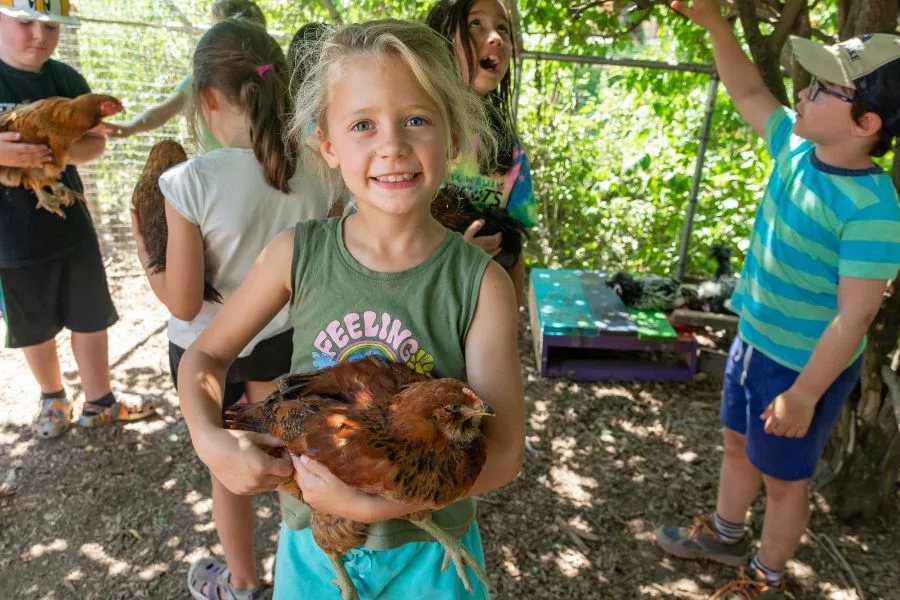
Offered: Year-round
Suggested Grades: Pre K - 4th
Go on an in-depth learning journey to better understand our fuzzy hopping farm companions! Students will learn about how rabbits are adapted to survive in their environment, what those adaptations mean for their lives in the wild and on the farm, and will, of course, get the chance to meet and interact with our farm bunnies. Students will learn the importance of habitat and diet for this species, and have the opportunity to observe and understand rabbit behavior and communication.
Learning Standards
Life Science: Characteristics of Living Things, Living Things and their Environment, Life Cycles.
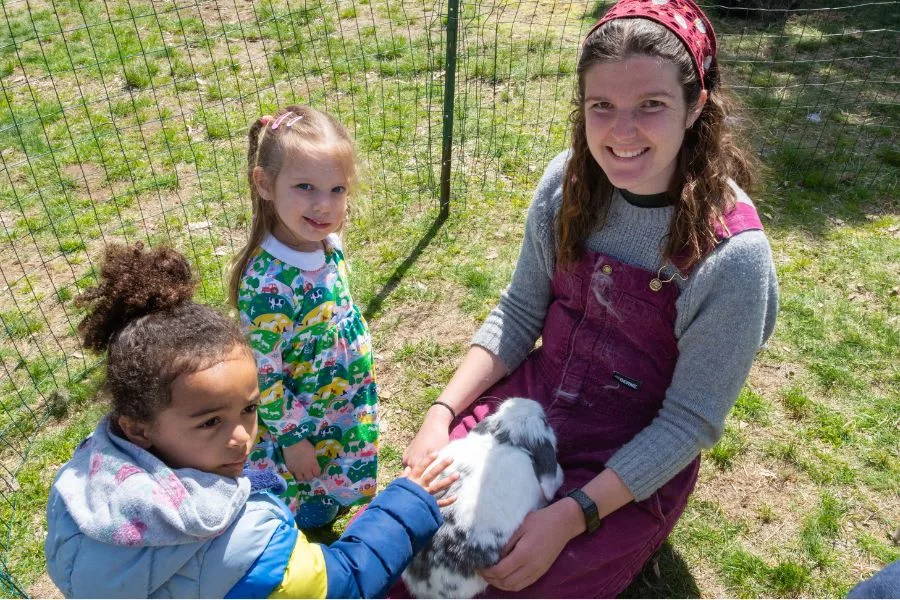
Offered: Fall, Spring, Summer
Suggested Grades: Pre K - 2nd
Understanding the connections between different organisms’ life cycles is a critical skill our farmers use daily to grow crops, raise animals and manage the land. We will investigate the life cycles of four common living things: chickens, fruits, and worms. Students will compare each of these life cycles to better understand similarities and differences in how living things change and grow.
Learning Standards
Life Science: Characteristics of Living Things, Living Things and their Environment, Life Cycles,
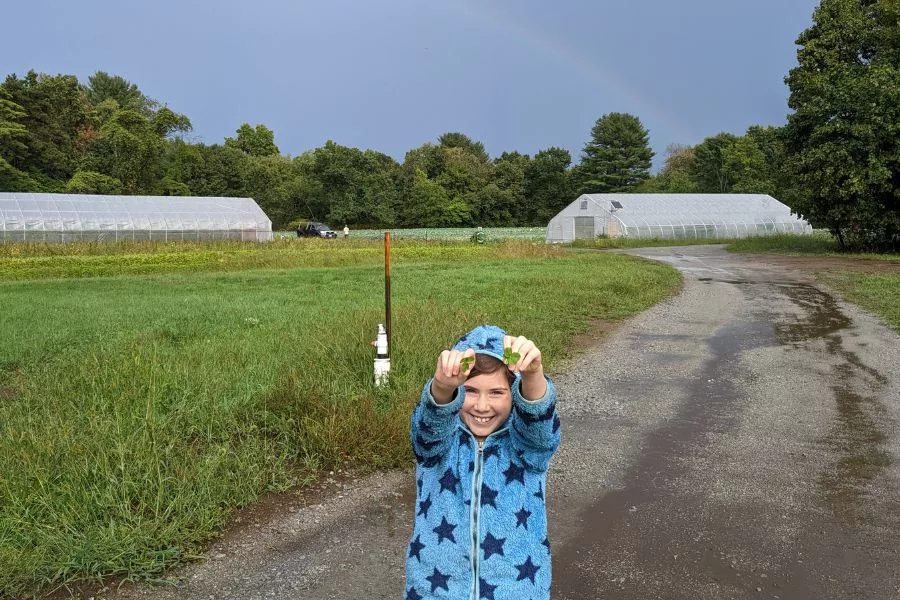
Offered: Summer, Fall
Suggested Grades: K-5th
Students will eat their way through the farm as we search for edible roots, stems, leaves, flowers, fruits and seeds. On our journey, we will examine the different functions of each plant part and how they connect to the larger natural world.
Learning Standards
Life Science: Characteristics of Living Things, Living Things and Their Environment, Structures and Functions
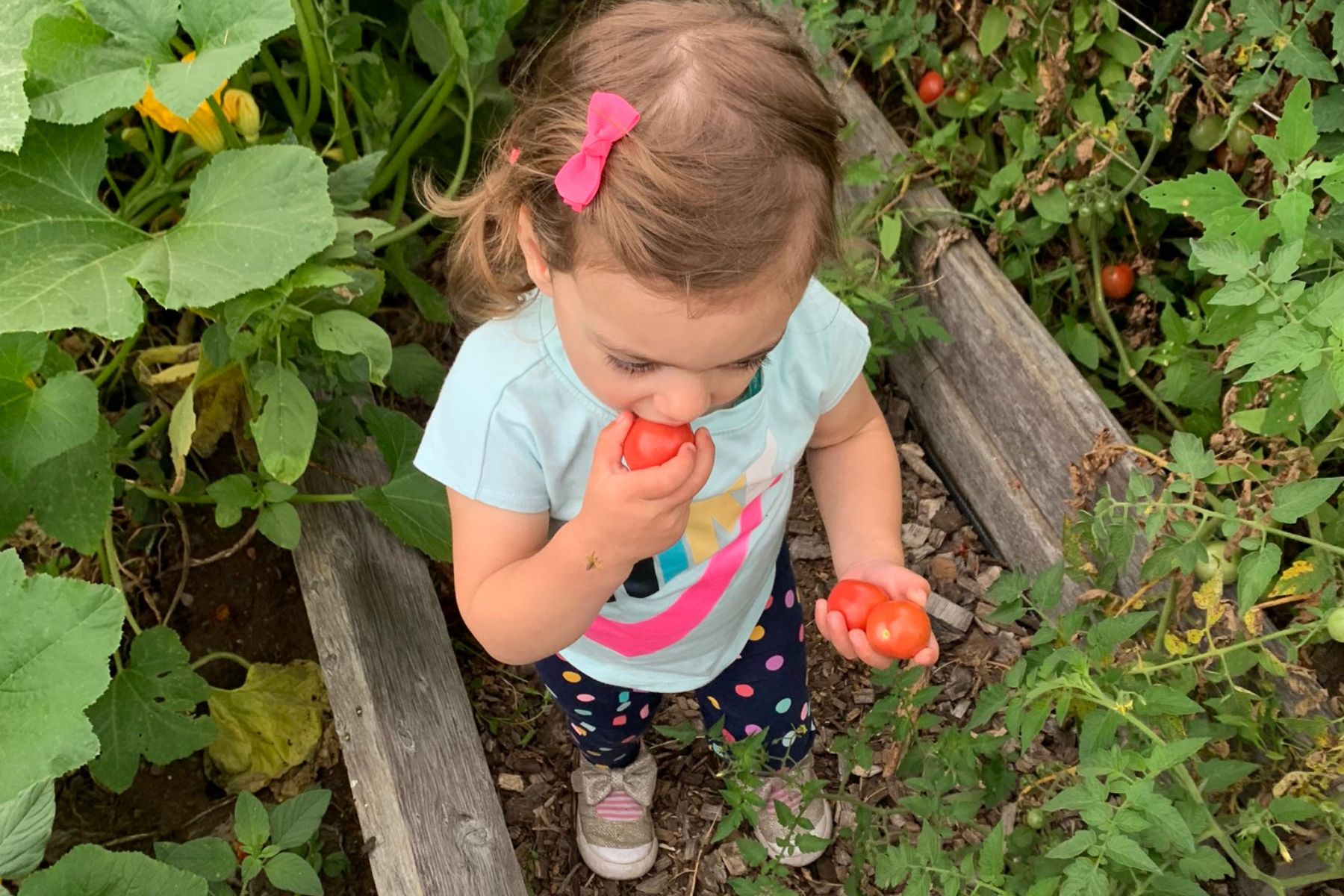
Offered: Summer, Fall
Suggested Grades: 1st - 4th
Discover the important role that pollinators play in the garden and on the farm. Together we will dissect flowers and learn their various parts, learn about several different pollinators that visit the Children's Garden, do an investigation on which pollinators prefer which flower colors, and pretend to be pollinators as we hunt for pollen in the garden. If we're lucky we may even get to taste the results of pollination, fruits and vegetables!
Learning Standards
Life Science: Characteristics of Living Things, Living Things and their Environment.
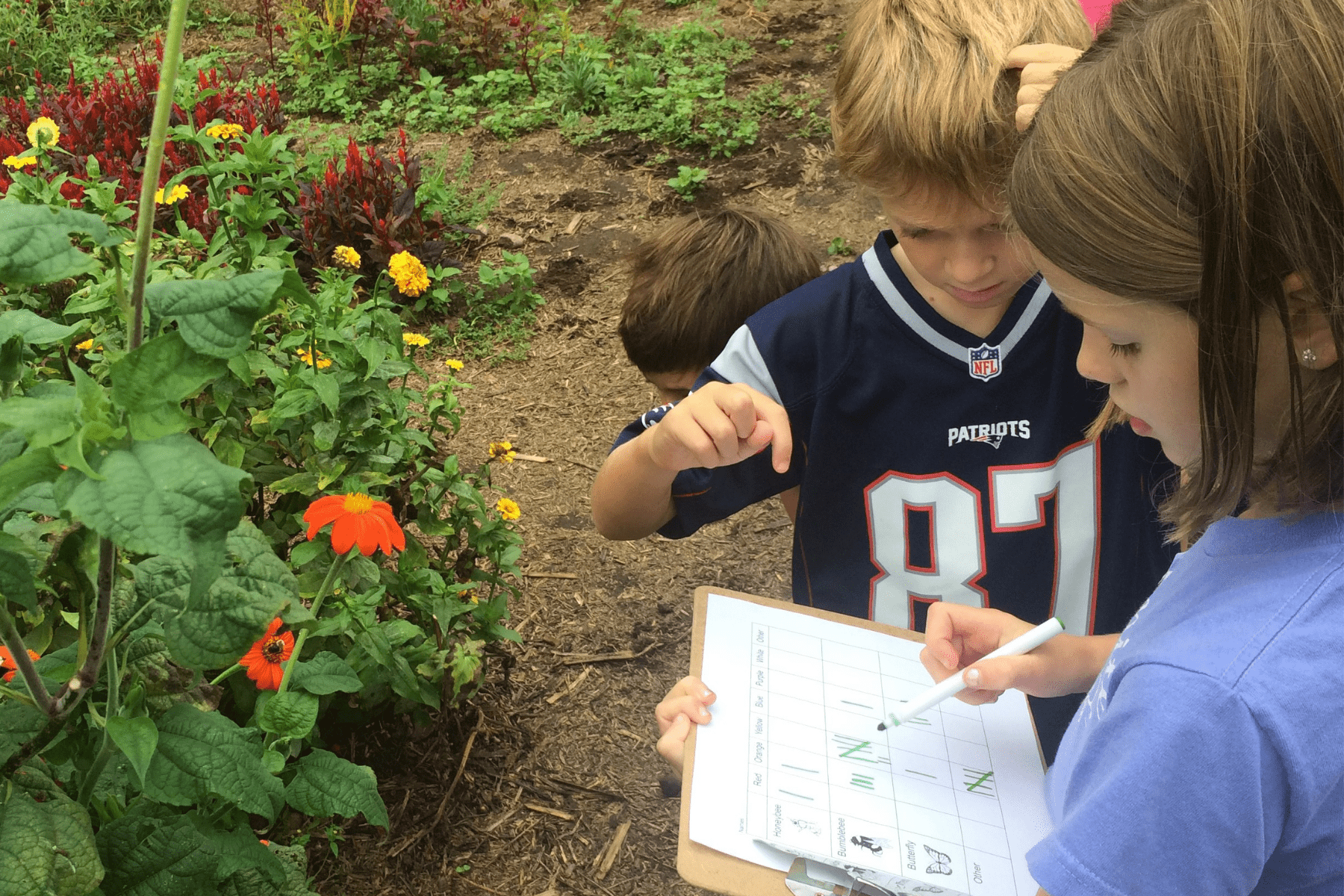
Offered: Summer, Fall
Suggested Grades: 1st & 2nd
Students will use evidence and observation to solve several “mysteries” about trees and the forest. Students will explore the life cycle of a tree, how to age a tree, how to understand if a forest is healthy or not, and what the reasons are behind seasonal changes in trees and forests.
Learning Standards
Life Science: Characteristics of Living Things, Living Things and their Environment, Life Cycles.
Earth Science: Periodic Phenomena
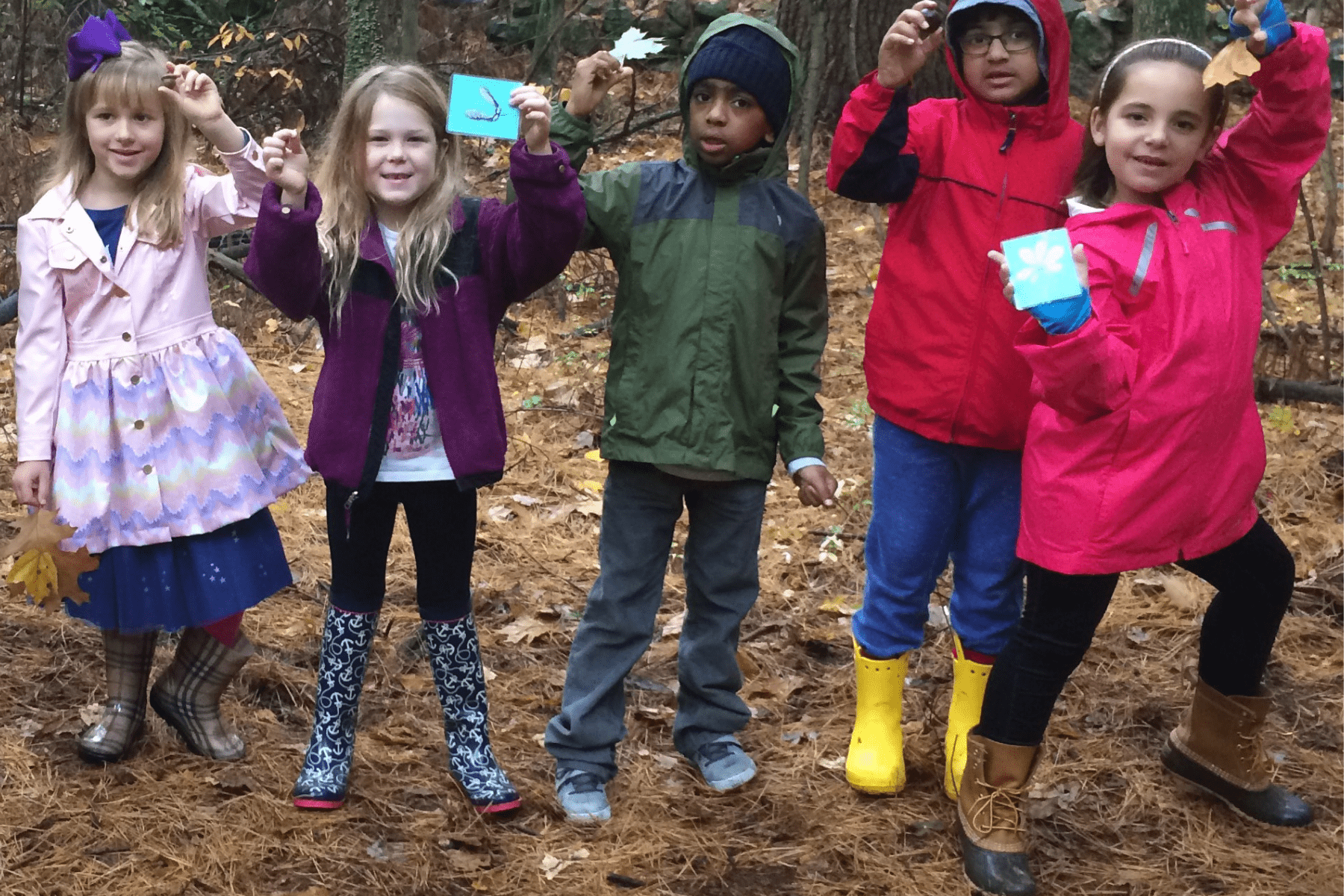
Offered: Fall, Winter, Spring,
Suggested Grades: 1st -4th
In this tour, students make connections between the everyday objects they use in their lives and the trees that make these products possible. Together, we explore what is made from trees, learn Land’s Sake’s sustainable firewood harvesting practices, and connect with the woods using our senses. Prepare to be surprised and amazed by the many ways we interact with trees, and inspired by the steps we take to harvest sustainably.
Learning Standards
From Molecules to Organisms: Structures and Processes Ecosystems: Interactions, Energy, and Dynamics
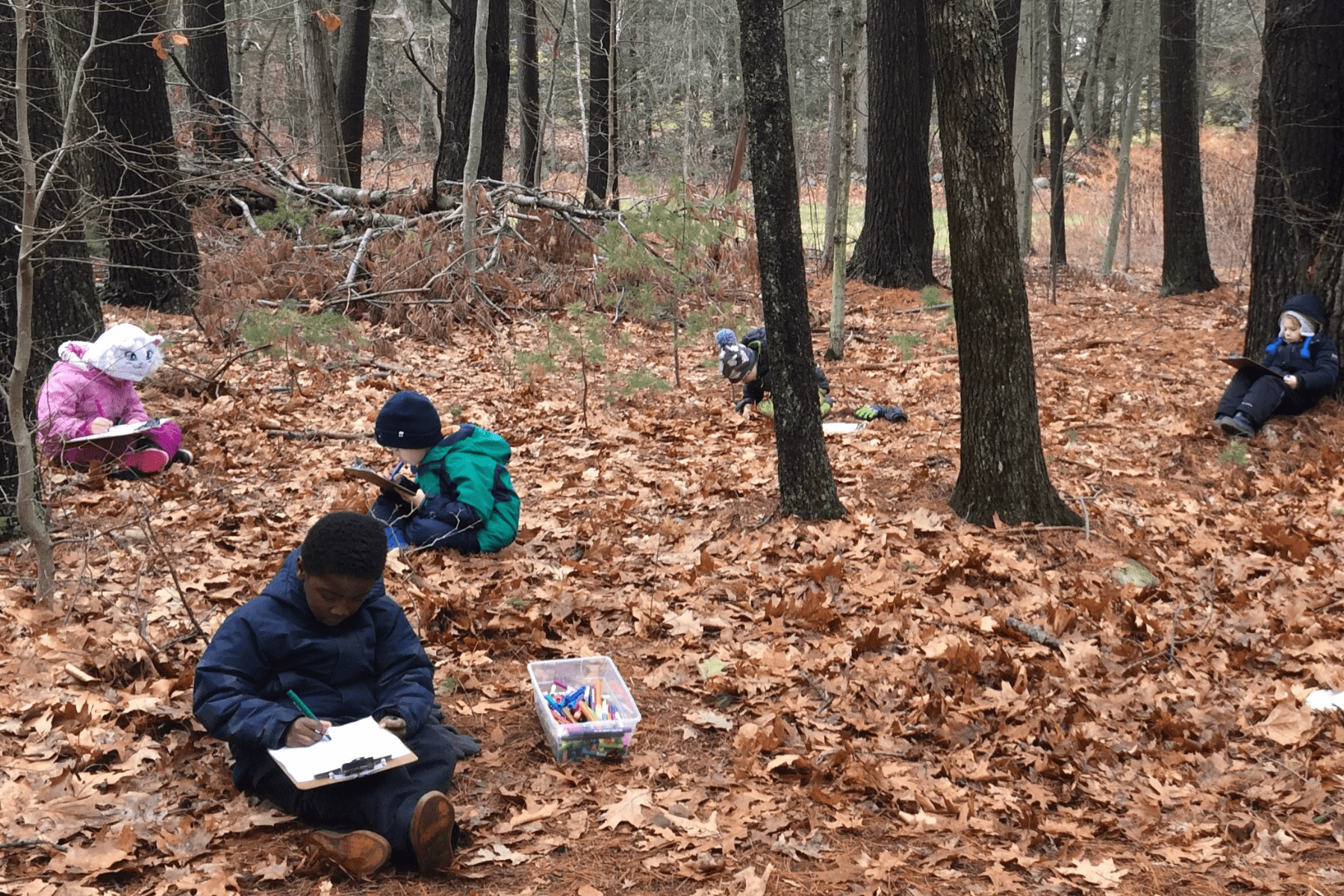
Offered: February, March
Suggested Grades: all grades
Land’s Sake invites school groups to come learn about the science and history of maple sugaring in New England. This program is a field trip to the Bill McElwain Sugar House in Weston, MA. Here students learn first-hand the process of making high quality, local syrup. Tree tapping, wood splitting, boiling and bottling are all explained in fun, educational, and interactive ways. Students see, hear, smell, touch, and even taste the various steps of the mapling process.
**please note that we are unable to guarantee that we will be boiling on any particular dates, due to the inconsistency of weather!
Learning Standards
Life Science: Characteristics of Living Things, Living Things and their Environment.
Technology/Engineering: Materials and Tools, Engineering Design
For more information about our well-established Maple Sugaring Program, please click here.
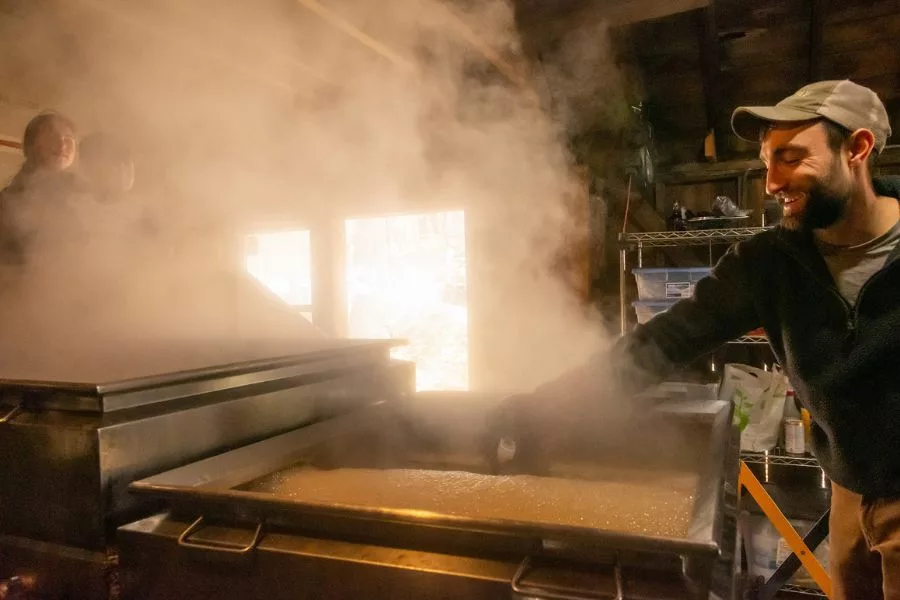
Offered: Winter, Spring
Suggested Grades: all grades
While exploring forested conservation land, students will learn about the history of these New England forests and get a first hand look at sustainable forestry in action. We will learn about how to choose which trees to cut down, the process involved in felling a tree, how we turn it into firewood, and why it’s so important to locally source these products. Conditions permitting, students may get a chance to try splitting firewood themselves!
Learning Standards
Life Science: Living Things and Their Environment, Energy and Living Things, Materials and Tools
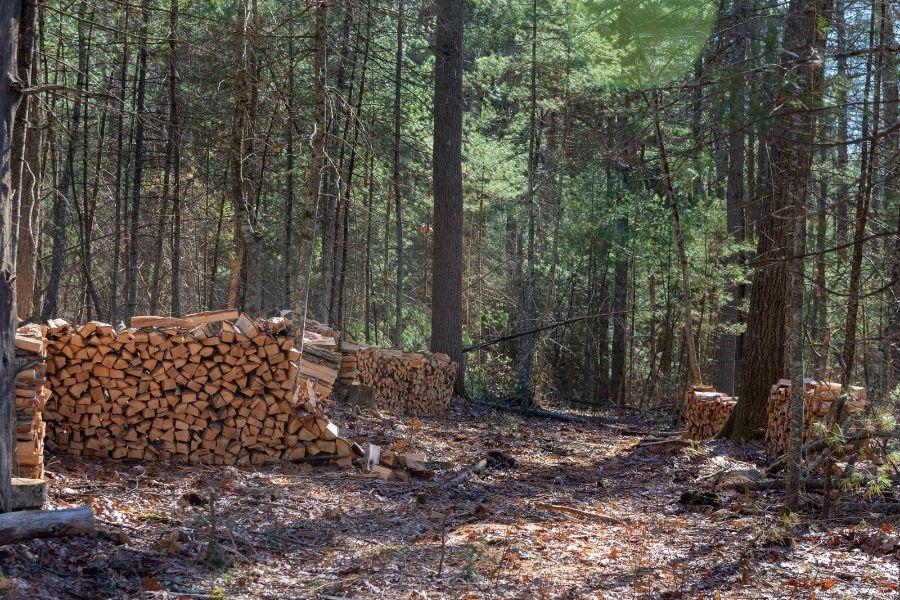
Offered: Spring, Summer, Fall
Suggested Grades: 1st - 5th
Students visit the farm to explore and identify the building blocks of soil: sand, clay, and humus, using various tools and soil identification tests. Acting as soil scientists, students explore the soils in a forest, on the farm, and in a wetland and compare the three. Students will also have a chance to meet some soil invertebrates and talk about how organic farming benefits the health of the soil.
Learning Standards
Life Science: Characteristics of Living Things, Living Things and their Environment, Life Cycles
Earth Science: Earth’s Materials, Sun as Source of Heat and Light
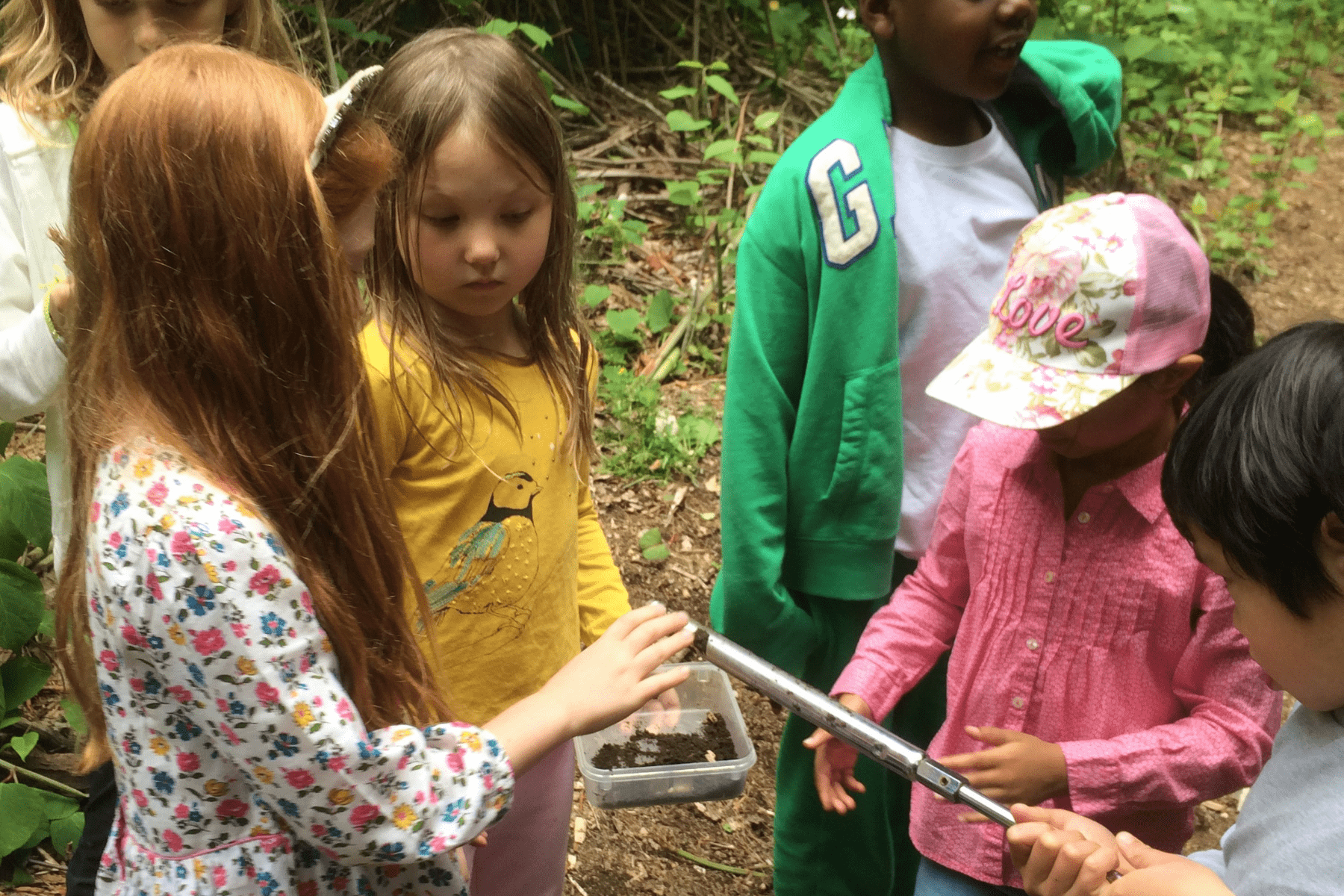
Offered: Spring, Summer, Fall
Suggested Grades: 2nd - 5th Grades
Students will explore the science of composting, learning about our three-bin garden compost system and the processes that turn plant waste into nutrient rich compost. The tour will include opportunities for students to help manage our compost, add compost to garden beds, learn about the compost food web, and experience a classroom sized vermicomposter.
Learning Standards
Life Science: Characteristics of Living Things, Living Things and their Environment, Life Cycles.
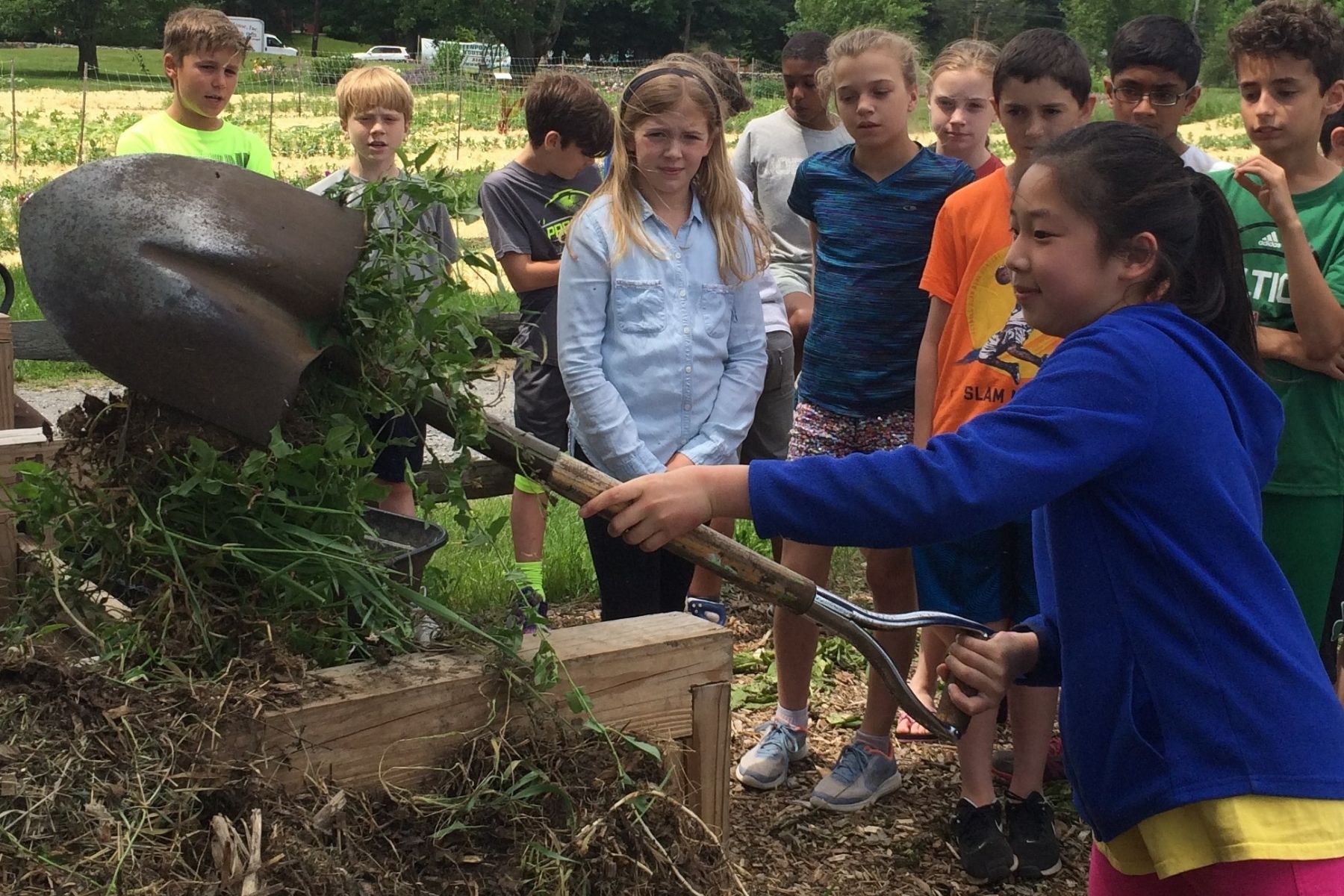
Offered: Spring, Summer, Fall, Winter
Suggested Grades: Pre K-2nd
This tour is perfect as a one time trip, or scheduled several times throughout the year. Students will come out in either fall, winter, or spring to see how the farm changes during different seasons. Using their five senses, students explore the Children’s Garden, chickens, rabbits, farm fields, and the Flower Garden.
Learning Standards
Life Science: Characteristics of Living Things, Living Things and their Environment
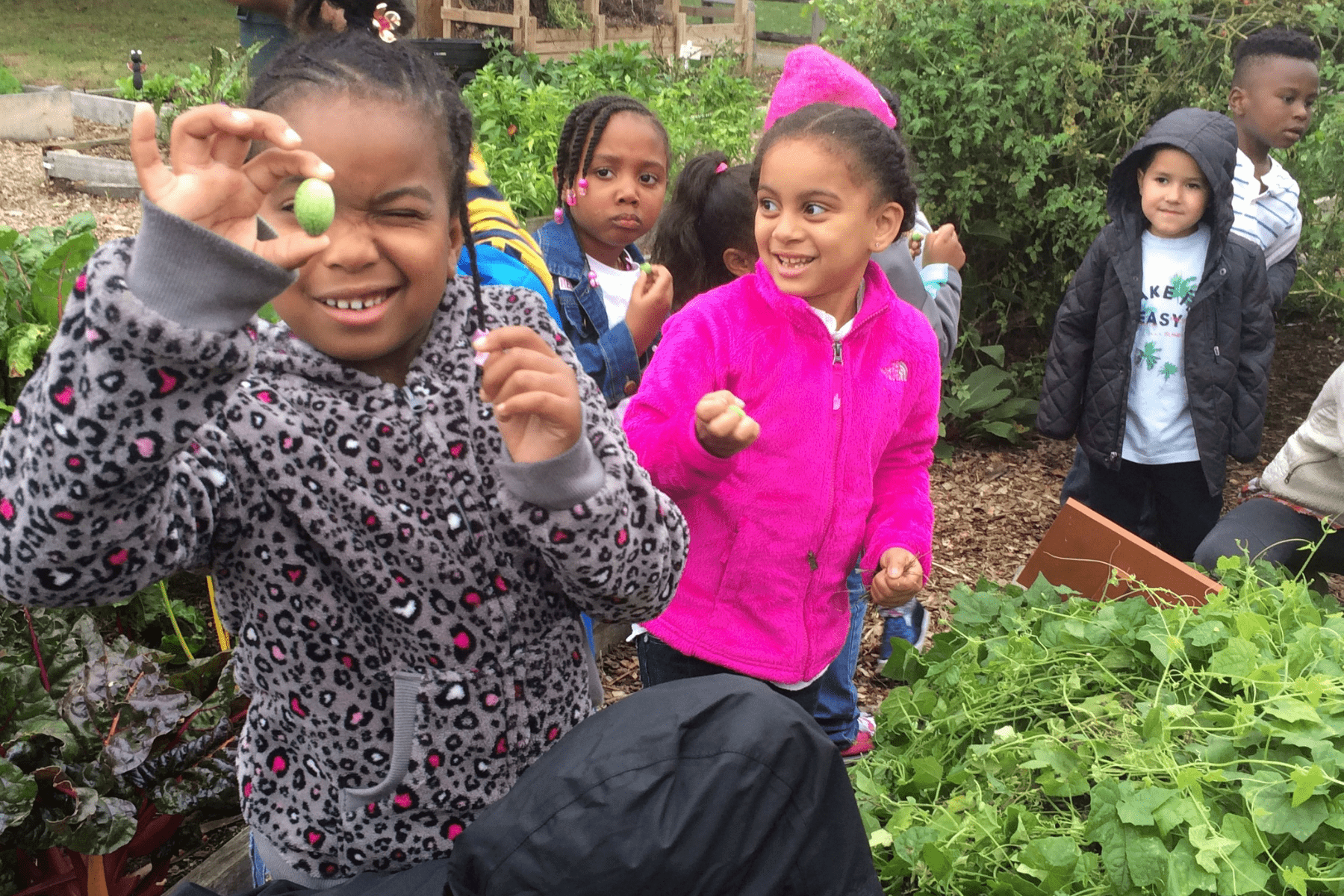
Price: $175 for up to 30 students
Offered: Fall, Winter, Spring, Summer
Suggested Grades: K-3rd
What makes a community? In this tour, students investigate the communities of our chicken coop and Farmstand to learn about their members, elements, and meaning. Fall tours include a study of chicken behavior and a focus on our farm crew, winter tours examine the effect of winter weather on our communities, and spring tours highlight eggs and seasonal vegetables. Book tours separately or as a set of three to observe how communities change and adapt along with our changing seasons.
Learning Standards
Interdependent Relationships in Ecosystems
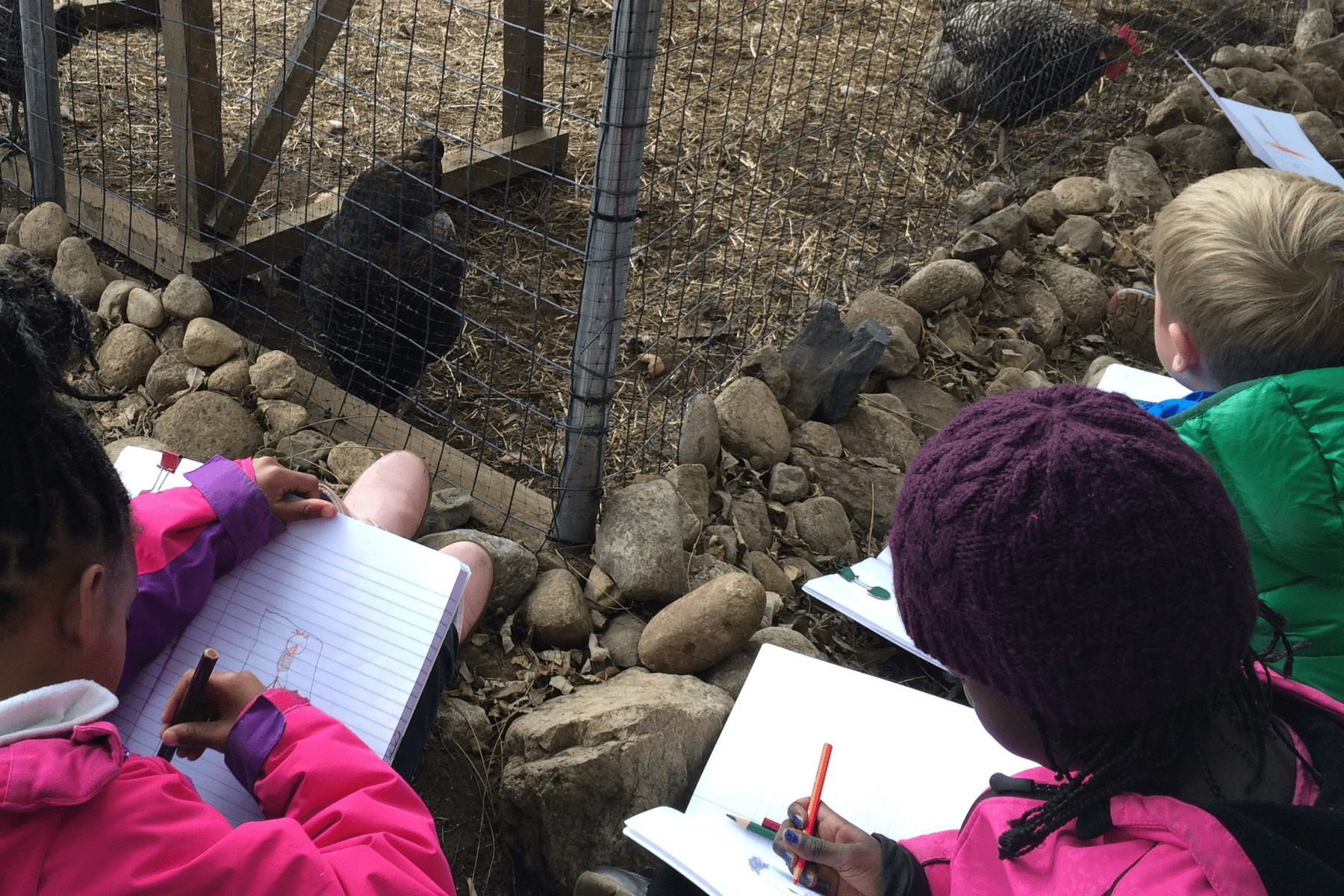
Offered: Spring, Summer, Fall
Suggested Grades: 1st - 5th
At Land’s Sake we use organic farming methods to grow a variety of vegetables, berries, and flowers. This tour gives a behind-the-scenes look at how farming at Land’s Sake really works. Students will explore all the major processes including seeding, transplanting, cultivating, integrated pest management strategies, harvesting, and selling/donating. We will discuss the Community Supported Agriculture model that we use, along with the farm stand.
Learning Standards:
Living Things and Their Environment, Energy and Living Things
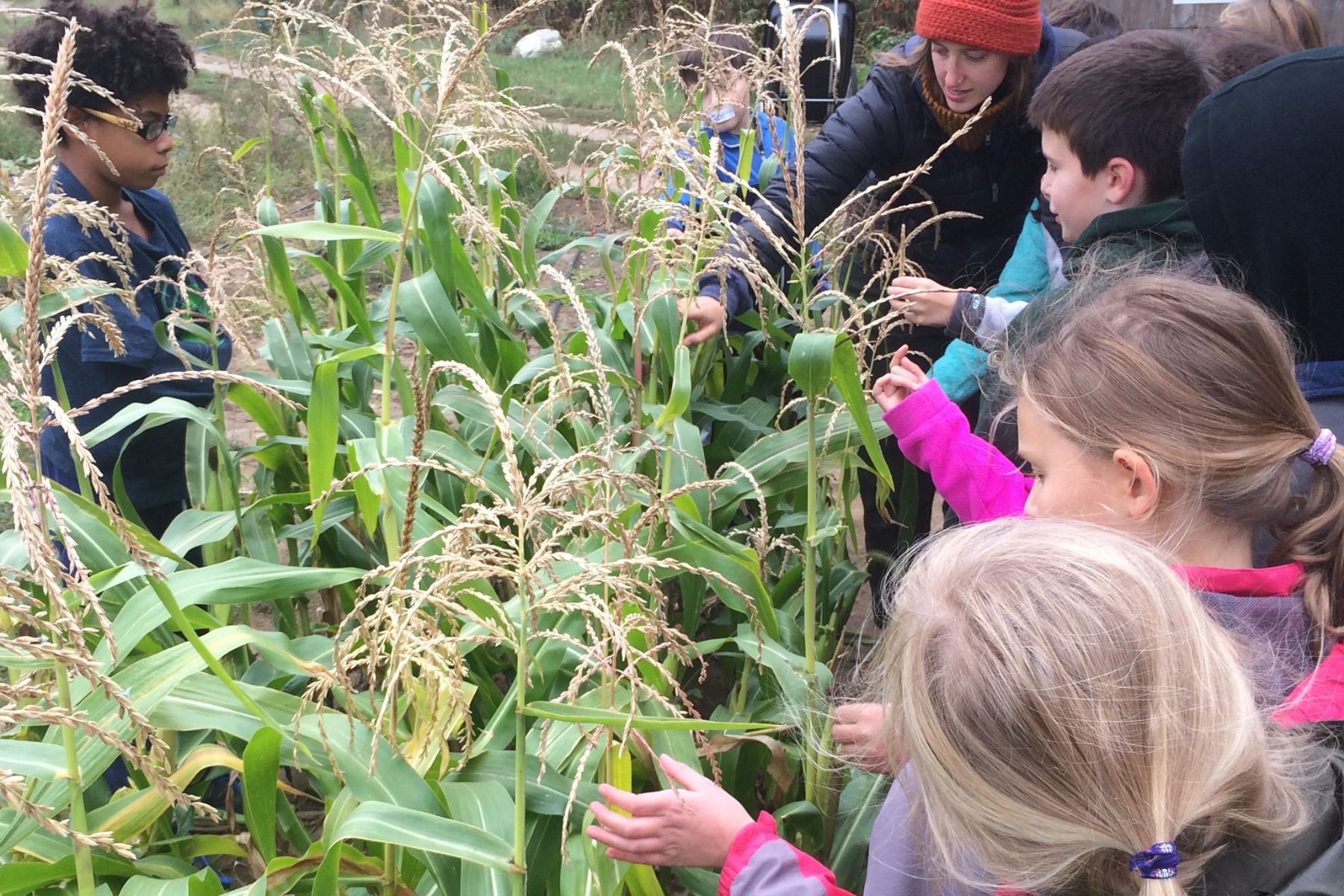
Suggested Donation: $500/corporate group; $10-$20/individual for community groups
Offered: Spring, Summer, Fall
Suggested Grades: All ages
Bring your students, groups, or faculty to the farm and get your hands in a project! Volunteer programs can include a tour of the farm. Groups generally come in the morning from 10:00 am-12:00 pm, and often stay for lunch on the farm, but our timing is flexible. We are pleased to engage corporate and community groups in farm work April through October.
Please consider supporting our work by making a tax-deductible contribution of $500/corporate group and $10-$20/individual for community groups. This suggested donation helps defray the costs associated with organizing, leading, and educating groups, ensuring our ability to offer meaningful service learning experiences. Thank you for your support! If you are interested in setting up a volunteer program, contact the Education Manager via email at education@landssake.org.
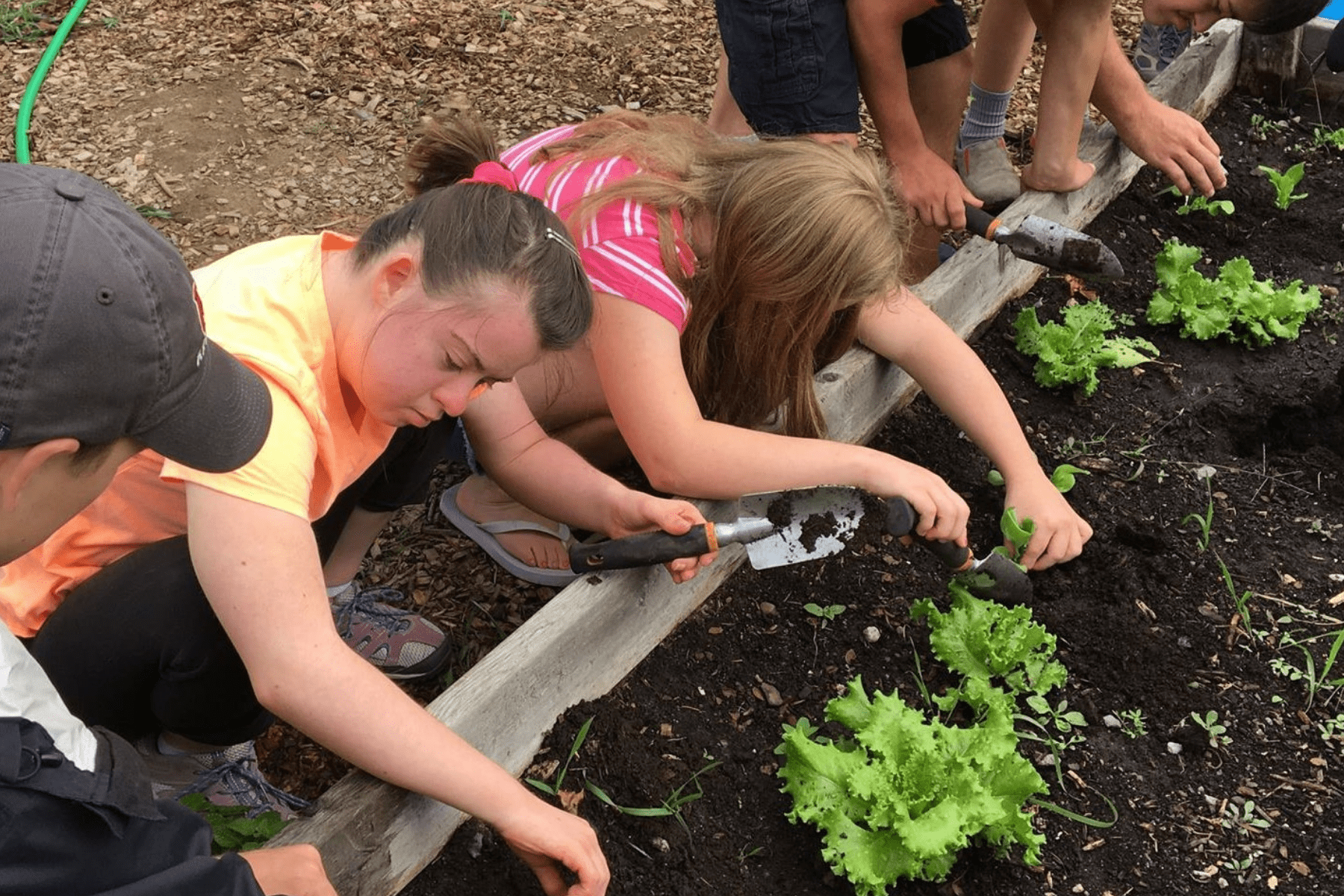
To register for an educational program or gain more information, fill out the above form or feel free to contact us at education@landssake.org.
